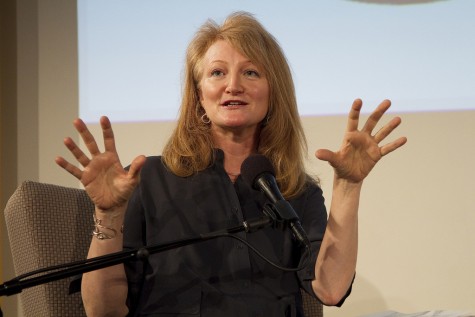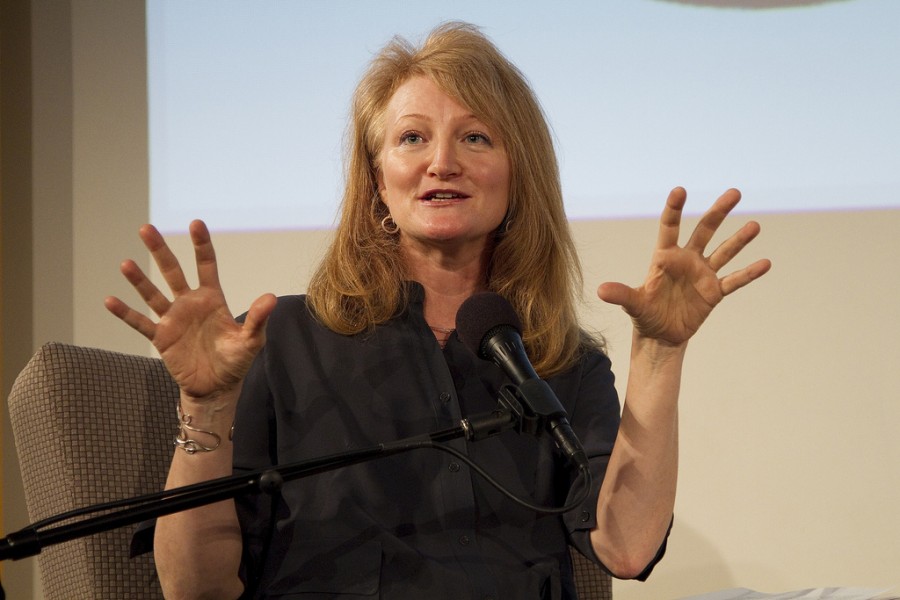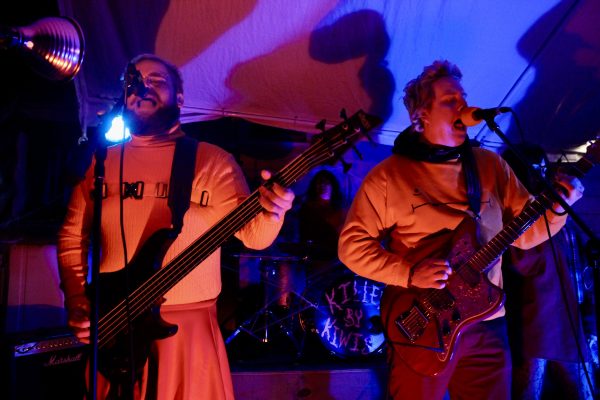The mystery and art of living
Award-winning broadcaster comes to speak about conflict resolution through the lens of religion.
November 4, 2015
Picture it. Two people, glaring over a coffee table and no longer speaking to one another. Their cheeks are flushed, eyes narrowed slightly, before one launches into a fresh counter attack. “You don’t understand-” These interactions, explosions over hot button issues, are exactly what Krista Tippett educates to avoid.
On Nov. 12, the National Humanities medalist and Peabody Award winning broadcaster will appear at two unique events. One, an interview titled “The Mystery and Art of Living,” will run from 4-5:30 p.m. in the Anderson Center Room 111-112 and the other, the Mahle Lecture, will run at 7:00 p.m. in Sundin Music Hall.
Deanna A. Thompson, Professor of Religion, shared more insight into the lecture’s focus and purpose.
“The lecture at 7 is on civil conversations and what she is doing, in that, is thinking about topics that tend to be really challenging to talk about in the public sphere,” Thompson said.
The idea often tied to conversation on important, emotionally charged issues is to simply be civil to one another. However, Tippett’s mindset focuses away from civility as merely being nice, but instead truly talking about big issues that matter.
“She wants robust civil conversations, she really wants [people] talking about really important issues—not necessarily when it’s at a conflicted time,” Thompson said.
Though organized by the office of Religious and Spiritual Life, the issues are not merely focused around religion alone. Tippett has been a radio broadcaster since 2001, starting with her show “Speaking of Faith” which has now been changed to “On Being.” Much like her show, her focus has stretched to encompass a broader context of conversation.
“She wanted to broaden the conversation, not ignore religion or drop religion out of the conversation. Religious and spiritual questions come up in that framework, but she really is also interested in science, civic engagement and all sorts of different creative work being done in and out of scholarly circles,” Thompson said.
Given the broader context, the lecture and interview should interest not only those intrigued in or studying religion or spirituality, but a wide range of the disciplines at Hamline. Tippett wrote an entire book exploring how science and religion intersect, a process that may interest religion or science majors. While the upcoming talk may appear geared towards religion majors, Tippett’s background as a journalist and author may resonate with English majors. In addition, her consideration of a variety of viewpoints is something nearly all disciplines do. Thus, her discussion, though framed through a focal point of religion, applies not only to Religion itself, but to the idea as a whole of important conversations on being human.
“I think she’s great for a place like Hamline in that she appeals to all the different disciplines we have. She’s a public intellectual. Anyone from religion to business to philosophy to chemistry to biology to anthropology…I think anyone would benefit from hearing her talk about those issues,” Thompson said.
In compliment and contrast to the lecture, the interview beforehand will be more personal. In a rare moment, the avid interviewer Tippett will become an interviewee. Deanna Thompson, as the facilitator of this interview, discussed the shift from the lecturer’s perspective to something more intimate.
“We’ll talk some about her career as a journalist [and] her career with the show. I’m really interested in getting her to talk about what she has learned about the mystery and art of living through her many, many, many different conversations. She often is the one asking questions; this interview will be an opportunity where she will be answering the questions, where she thinks about all the things she’s been hearing,” Thompson said.
Because it goes from an interview on Tippett’s personal journey to a lecture on civic conversations, the event should appeal to both religious and secular individuals. According to Thompson, the Mahle Lecture seeks to satisfy the diverse interests of the Hamline community. via Flickr.com
via Flickr.com





